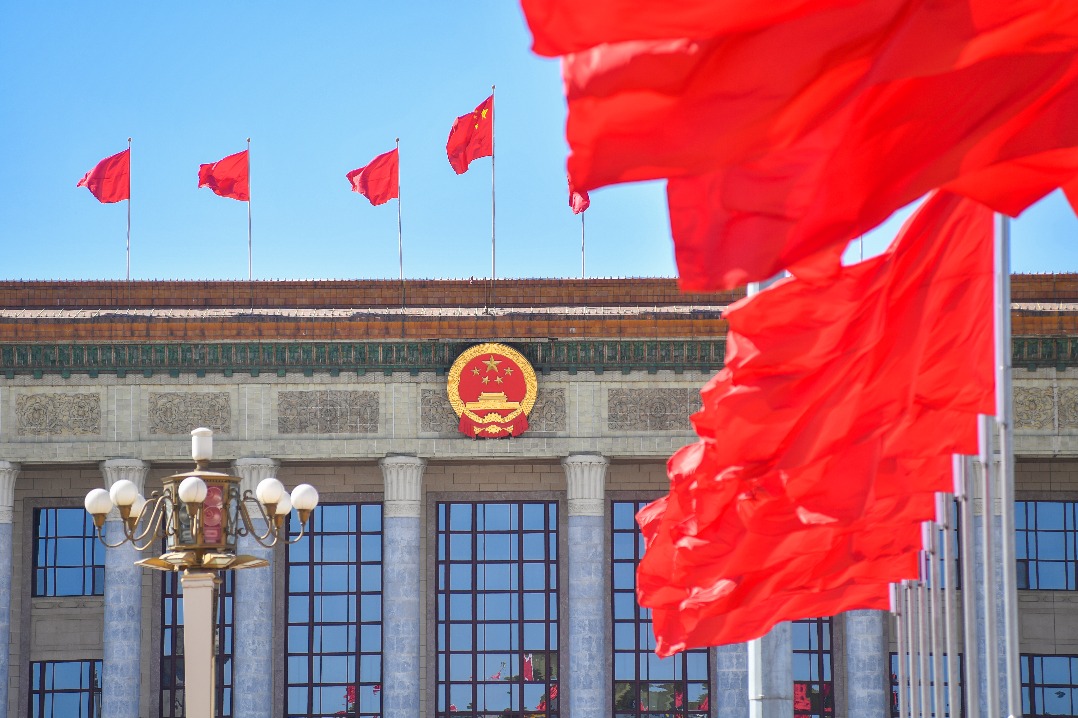Chinese firms have vital say in global innovation

Chinese enterprises have played a critical role in shaping the global innovation landscape, driving sustainable development and strengthening international cooperation, said World Economic Forum President and CEO Borge Brende.
Efforts should be made to harness the immense potential of the artificial intelligence revolution and the digital economy, advance the dual transformation of green and digital development, and cultivate an inclusive, sustainable and resilient innovation system, Brende said.
Brende made the remarks at the Sino-Foreign Entrepreneurs Dialogue, held as part of the 2025 China Enterprise Forum in Beijing from Monday to Tuesday. The forum, themed "Reshaping Growth Engines: Global Competitiveness Driven by Innovation", was organized by the State-owned Assets Supervision and Administration Commission of the State Council, attracting over 500 participants from government sectors, enterprises and research institutes.
Li Zhen, deputy director of SASAC, echoed Brende's sentiments, noting that State-owned enterprises are willing to continue working hand-in-hand with foreign partners.
Li emphasized leveraging high-level technological innovation to jointly write a new chapter of open, inclusive and mutually beneficial high-quality development, creating a bright future of global economic prosperity.
"Enterprises are a critical component of the global economic system. They must reshape growth momentum through innovation and use the certainty of high-quality development to offset external uncertainties."
Li underscored SASAC's support for SOEs in continuously optimizing their mechanisms for technological innovation, improving incentive and constraint systems, and striving to create an open, inclusive and dynamic innovation ecosystem.
Yang Yougui, senior vice-president of Huawei, said digitalization, intelligence and low-carbon development are the three clear directions shaping the current world.
"Sustained investment in research and development is the foundation for the future growth of enterprises," Yang said, noting the company has allocated 20 percent of its annual revenue to R&D.
It is precisely because of its continuous investment in product development and fundamental research that Huawei has been able to "survive and continue to grow", he added.
Zhang Wei, deputy head of the Chinese Academy of International Trade and Economic Cooperation under the Ministry of Commerce, highlighted that maintaining the safety and stability of supply chains has become a major concern for all enterprises amid changes in supply chain cost structures under a complex international environment.
The global supply chain is currently undergoing profound adjustments, but decoupling from China's supply chain is economically unviable. "Only an open and cooperative supply chain can create a win-win situation," Zhang said.
Chinese and foreign enterprises can engage in mutually beneficial cooperation in more third-party countries, jointly contributing to the prosperity and development of the world, he added.
Today's Top News
- Beijing hopes COP30 will address concerns of developing nations
- China, US seek to stabilize trade relations
- Li: CIIE a key bridge linking China, world
- Pacts epitome of South-South cooperation
- Dutch govt should act responsibly to resolve trouble of its own making: China Daily editorial
- Shenzhou XX crew's return trip delayed due to space debris risk






























